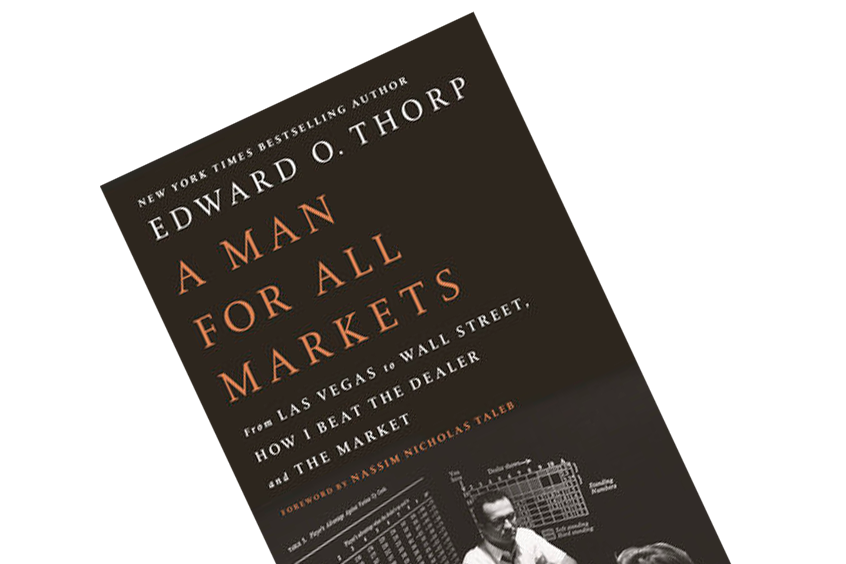He is the author of Beat the Dealer, the first book to mathematically prove, in 1962, that the house advantage in blackjack could be overcome by card counting. He also developed and applied effective hedge fund techniques in the financial markets, and collaborated with Claude Shannon in creating the first wearable computer. First we learn about Thorp’s modest upbringing with a reclusive father and a mother who ran off with another man and Thorp’s college money. The young Thorp uses knowledge and reasoning as his way forward in life. Since he is largely self-taught he is motivated to think differently and empirically test theories.

Thorp’s early focus on the nuances of blackjack card counting may not be of great interest to money managers, but he provides enough details on his research process and trade testing to keep readers engaged. From blackjack and roulette, where he helped develop the first https://www.thebalance.com/retained-earnings-on-the-balance-sheet-357294 wearable computer, Thorp moved on to the “big casino” — that is, Wall Street. Professional investors can learn much from Thorp’s application of his gambling-based methods of solving problems, measuring probabilities, and formulating choices to stock and options trading.
Still, this isn’t as much a book on investing as it is an autobiography plus – unfortunately – a strangely added on mix of chapters with personal finance advice and contemplations on financial markets. The first two books I ever read on gaming were Richard Epstein’s 1967 Theory of Gambling and Statistical Logic and Thorp’s 1962 Beat the Dealer.
When Thorp as a young academic asks world famous physicist Richard Feynman if it is possible to beat the game of roulette and receives a negative answer, he is encouraged – if Feynman thinks it is impossible then there will be no competition. The first part of the book is a bit flat and the text makes it obvious how important it was for the underdog Complete Guide to the Futures Market Thorp to be smart. After some “nos” from the mathematicians colleagues, he decided he had to test in real life his approach. After several casinos, he was able to prove his gambling system. Every day he called his wife as a collect call (at that time those kind of calls were really expensive) with a code to say how much money he made that day.
Customers who read this summary also read
He starts with detailed life account from the early beginnings of life in poverty through to present day. I was surprised the author dedicated the last 1/3 or 1/4th of the book to personal finance, budgeting, and life view/work life balance. Straddling between an academic career and high stakes gambling, Thorp hit the sweet spot with his techniques for https://forexarena.net/the-millionaire-next-door/ card counting in Blackjack. While other academics scorned his methods for being simplistic, Thorp went on to understand risk and probability in everyday games (blackjack, roulette or investing) and developed winning systems that benefitted his clients. His multidisciplinary approach to learning is a lesson for anybody who wants to make it big in life.
By Edward O. ThorpRead by Edward O. ThorpForeword by Nassim Nicholas Taleb

- Having brushed shoulders with casino mobsters and survived, he shared his secrets with the world, launching a gambling renaissance.
- I like that he deliberately calls out how some people you come across in life will not hesitate to put their well being ahead of yours even when they already have what may be considered a comfortable position in life.
- Throughout, it is interesting to see his decision making process simplified by his honesty, and his understanding of the things more valuable than money.
- The structure of the book was roughly 2/3 autobiography and 1/3 investment advice.
If you’re a serious card player, or trying to make a career in the pit, both of these are almost mandatory. A child of the Great Depression, legendary mathematician Edward O. Thorp invented card counting, proving that you could do the seemingly impossible—beat the dealer at the blackjack table—and in doing so launched a gambling renaissance. His remarkable success—and mathematically unassailable method—caused such an uproar that the casinos altered the rules of the game to thwart him and the legions he inspired. They barred him from their premises, instituted new rules, and put his life in jeopardy.
Beating the Odds, from Las Vegas to Wall Street
His method made him lose at first, but ending with a positive amount of he followed strictly his method. This was something important when investing his money on the financial markets. His “back ups” also earned money when following his strategy and lose https://search.yahoo.com/search;_ylt=AwrE19f0b9Vd1yEA.BJXNyoA;_ylc=X1MDMjc2NjY3OQRfcgMyBGZyA3lmcC10BGZyMgNzYi10b3AEZ3ByaWQDbWFsVjhWYUlUcS5EM1dDYnRYVW84QQRuX3JzbHQDMARuX3N1Z2cDMARvcmlnaW4Dc2VhcmNoLnlhaG9vLmNvbQRwb3MDMARwcXN0cgMEcHFzdHJsAzAEcXN0cmwDMTgEcXVlcnkDJUQwJUIxJUQxJTgwJUQwJUJFJUQwJUJBJUQwJUI1JUQxJTgwJTIwJUQwJUJBJUQxJTgwJUQwJUI4JUQwJUJGJUQxJTgyJUQwJUJFJUQwJUIyJUQwJUIwJUQwJUJCJUQxJThFJUQxJTgyBHRfc3RtcAMxNTc0MjY5MzU2?p=%D0%B1%D1%80%D0%BE%D0%BA%D0%B5%D1%80+%D0%BA%D1%80%D0%B8%D0%BF%D1%82%D0%BE%D0%B2%D0%B0%D0%BB%D1%8E%D1%82&fr2=sb-top&fr=yfp-t&fp=1 it when they though they were being luck and stopped with his method. The book is a wonderful tour de force of Thorp’s fascinating life. And, by all accounts, he’s been a decent and good guy for the whole ride, even as he amassed a considerable fortune.
BOOK REVIEW: A Man for All Markets
Ed Thorp is to quantitative investors what Ben Graham is to value investors – the founding father. Thorp, a mathematics professor and overall science genius, has an incredible investment track record.
From 1969 to 1988 the two Princeton Newport Partnership funds showed an annual return of 19.1% and 15.1% vs. a return of 10.2% for S&P 500. Further, between 1992 https://twitter.com/hashtag/brexit?lang=pl and 2002 Thorp’s statistical arbitrage portfolio returned 18.2% per year with 6.7% annualized volatility compared with 7.8% and 15.1% respectively for S&P 500.
Reading information
It’s fascinating to see how he develops theories and then translates them into a way to make money in fast-moving markets. “https://forexarena.net/ ” is firstly an Autobiography Memoir.





